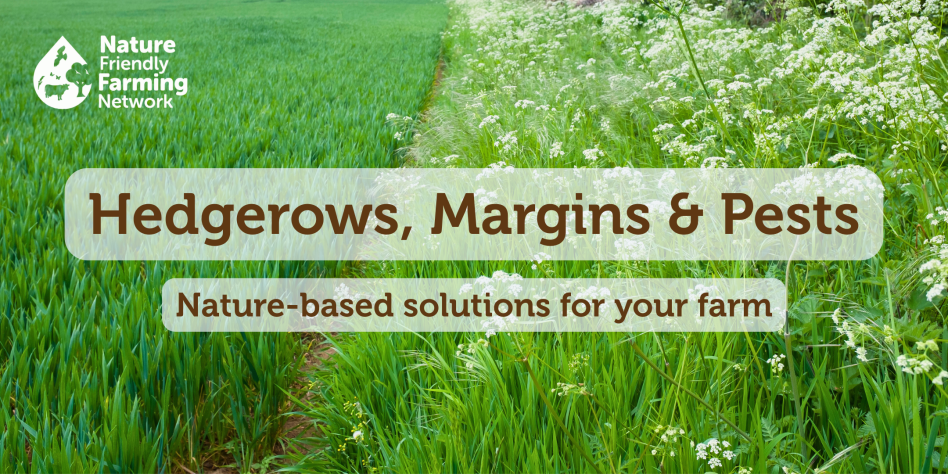As the climate changes and biodiversity declines, adopting a whole-farm approach to pest, weed and disease control is becoming more important than ever. Integrated Pest Management (IPM) offers a practical, flexible way to reduce reliance on chemicals by combining cultural, biological and physical control methods — supporting productive, resilient farms.
Hedgerows and field margins play a key role in IPM. These areas provide essential habitats for beneficial insects such as bees, butterflies, beetles, and moths - natural allies in controlling pests and improving pollination. With thoughtful habitat management and simple steps to reduce reliance on chemicals, farmers can support biodiversity while continuing to produce high-quality food and healthy livestock.
Join the Nature Friendly Farming Network (NFFN) in West Kent for a practical, on-farm event.
Hedgerow expert Megan Gimber (People’s Trust for Endangered Species (PTES)) will lead a farm walk and talk on managing margins for wildlife and pest control.
Steven Lofting and Roland Brown (Butterfly Conservation’s South East Team) will highlight key local species and explain how butterflies and moths act as indicators of ecosystem health.
Lunch will be provided.
Your speakers
Megan Gimber (PTES) - Megan has been working for the People’s Trust for Endangered Species since 2015. She runs training courses and hedgerow walks across the country, promoting the many virtues of hedgerows and how best we can look after them.
Steven Lofting (Butterfly Conservation) - Steven is the Conservation Manager for South East England and heads up the region's conservation projects on a variety of countryside species such as the brown hairstreak, white-letter hairstreak and the wood white.
Roland Brown (Butterfly Conservation) - Roland is the Chairman of the Kent & SE London Branch and an NFFN farmer in East Kent. He also works on Kent’s Plan Tree Project to help conserve the white-letter hairstreak through local Elm tree planting.


